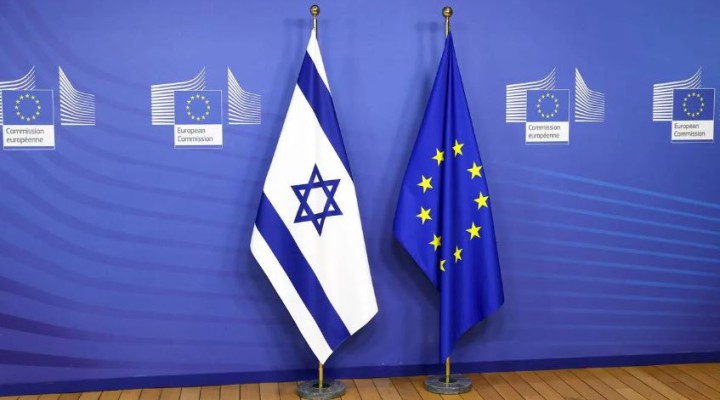Israel’s security narrative and the international community’s humanitarian paradigm

Israel is up against renewed collective action in terms of Palestinian anti-colonial resistance. The Palestinian Authority has once again halted security coordination, although Mahmoud Abbas has reneged several times and will possibly do so again. Meanwhile, the EU has called on “both parties to do everything possible to de-escalate the situation and to restart security coordination.” While “both parties” frames the EU’s Foreign Policy Chief Josep Borrell’s words, it is clear that the bloc expects Palestinians to accommodate Israel. Borrell’s statement is also clear on the EU’s recognition of “Israel’s legitimate security concerns.” In other words, the EU’s recognition of Israel’s fabricated security narrative normalises Israel’s colonial enterprise and violence against Palestinians. So where does the EU’s stance leave the issue of Palestinians’ human and political rights?
With such impunity constructed for Israel’s benefit, it is of no wonder that Israeli Defence Minister Yoav Gallant’s recent statement elicited no criticism. “Anyone who helps the terrorists will be harmed. If it is necessary, we will destroy their houses. We will deprive them of their rights. If necessary, we will expel them,” Gallant stated to reporters after an assessment at the military’s headquarters in the occupied West Bank.
Of all the atrocious measures mentioned by Gallant, there are none that Palestinians have not yet experienced. Yet Israel is attempting to pass itself off as an entity that has acted within the parameters of human rights and only recently decided to act otherwise. One succinct reminder to Gallant – Zionist colonialism robbed Palestinians of their rights, destroyed their houses and displaced them. What makes Gallant’s threat purportedly new? The fact that the Nakba happened in 1948 and Israel has been careful to disguise its subsequent violence against Palestinians as punitive measures?
US Secretary of State Antony Blinken failed to address Israel’s violent actions during his visit, relying instead on promoting the status quo which empowers Israel further. The Abraham Accords are still providing the US and the international community with enough deviation from the issues at stake, notably Israel’s continuous encroachment on Palestinian territory which goes against international law but has been normalised by the UN when it accepted Israel as a member state in 1949. UN recognition of Israel sealed the Palestinian people’s fate. Israel’s recognition as a state eliminated the colonial context at an international level.
When Palestinians speak of the ongoing Nakba, the international community should pay heed. Just because decades have passed since 1948 and Israel no longer needs to ethnically cleanse Palestine from Palestinians through mass expulsion, it does not mean that the settler-colonial apartheid enterprise has abandoned the foundations of its tactics. Gallant’s statement seeks to distance Israel’s present actions from those of Zionist paramilitaries prior to Israel’s establishment, but Palestinians know better. And so does the international community, but it is much more partial to the humanitarian paradigm it created for Palestinians. Without Israel, there is no humanitarian consequence for Palestinians upon which the international community can clamour for human rights and humanitarian aid. If Gallant carries out his threats, Israel feeds the international community’s humanitarian narrative, while the latter promotes Israel’s alleged security narrative.
https://www.middleeastmonitor.com/20230205-israels-security-narrative-and-the-international-communitys-humanitarian-paradigm/
 TheAltWorld
TheAltWorld 
0 thoughts on “Israel’s security narrative and the international community’s humanitarian paradigm”